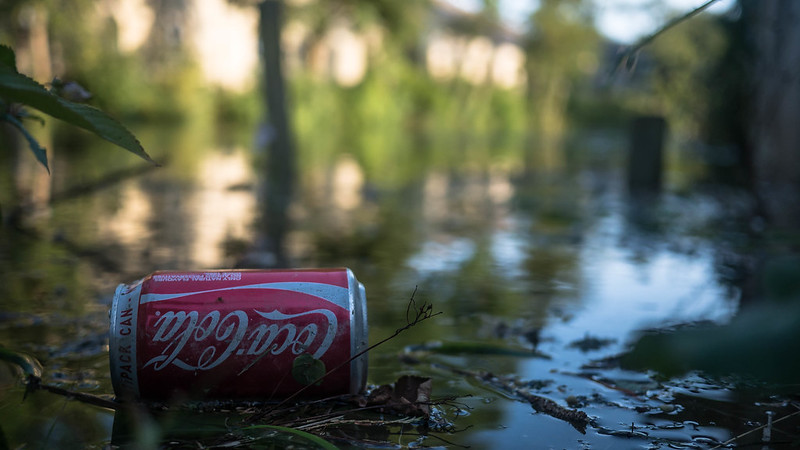A strong barrier stands in the way of the decarbonisation we need to slow down climate change. Parts of the economy essential to achieving it have been privatised by the Tories. In order to decarbonise, we will first have to de-privatise.
Truss’s free-market ideology is putting some basic arguments back on the political agenda as her project collides with reality. Explaining why the approach of putting the market in command of everything is a road to disaster will be essential over the next two years. This is particularly clear in the case of energy, carbon, and climate.
As we saw with Ofgem’s “Price cap”, Ofwat’s failure in dealing with water companies discharging sewage, and the latest extension of the Avanti West Coast rail franchise, regulation has often proved completely inadequate. To some extent this is due to the “revolving door” arrangements whereby regulators are recruited from the firms they regulate and then go back to them, but probably more important is the weakness of political will on the part of the Government to get the regulators to do their jobs properly, encouraged of course by the lobbying and pressure coming from the firms themselves.
Private sector firms are in business to make a profit, which they do by trying to maximise their revenue and minimise their costs. Revenue is easier to maximise if you have few or no competitors, as many train companies have found, where privatisation has led to a series of exploitative regional monopolies (ironically some of which are state owned but by other countries’ governments).
Cost minimisation is easier if you can use resources that are free, or you can push your costs on to others. This is essentially what has caused the climate crisis. The capacity of the atmosphere, vegetation, and oceans to absorb carbon is free, because (at least until recently) no organisation has been established which can charge for it. Simple economic theory implies that there is bound to be very high demand for a resource that is free and useful, and it then easily becomes overused.
Carbon taxes and emissions permits systems are a way of handling this problem, but they have constantly been undermined by private sector lobbying which naturally seeks to keep down their taxes and other costs. This is a flaw in the thinking of most environmental economists, who theorise about the design of perfect tax and permit systems but fail to address the politics of how those taxes and permit systems will actually operate in practice. A good example of this is the way in which the EU Emissions Trading System was pushed into issuing too many permits and allowing too many exemptions.
We cannot expect private profit-seeking companies to behave differently, unless forced to do so. And since any such forcing interferes with the running of their company and the maximisation of their profits, they operate politically to resist any such measures being imposed on them. Notoriously, oil companies have for decades been funding climate science denial and delay groups, including one of Liz Truss’s favourite think-tanks, the Institute of Economic Affairs. The IEA was also found to have offered their rich donors ministerial access in 2019, and the amount of influence they have over Truss’s government should not be understated.
From the late 1940s to the 70s, there was a general consensus across the political spectrum that there should be public ownership of basic utilities, such as gas, electricity, water, and railways, which were described as ‘natural monopolies’, because of their fixed pipes, wiring and rail track. While there were arguments between Left and Right about other parts of the economy, such as the steel industry, Tories and Labour agreed that natural monopolies should not be privatised, because that would be bound to lead to regional or national monopolies, which would tend to exploit their customers through charging higher prices than necessary, as we are seeing now with the energy companies.
The public are feeling the direct impact of this and are largely in support of bringing the energy companies back into public ownership as a means to reduce their household bills. Recent polling by YouGov has highlighted that support for nationalisation reaches across the political spectrum, with support for public ownership amounting to 59% of the public and 56% of Conservative voters.
The climate crisis brings an additional and even more compelling argument. Decarbonisation is an imperative for the world as the climate steadily deteriorates, with one-third of Pakistan under water recently, large parts of China subject to drought, forest fires breaking out in the US and Australia, and areas in the UK subject to severe flooding. There are responsibilities here that transcend the private sector’s sense of responsibility for their shareholders’ dividends. These responsibilities create a need for citizens to get their governments, either separately or through international agreement, to draw up and lead strategic plans to decarbonise.
As Labour for a Green New Deal argued in its motion for Labour Party Conference, implementing such plans is obviously easier if there is public ownership of the main sources of energy supply. Having the private sector in overall command of the economy’s natural monopolies is simply a guarantee of continuing exploitative prices and the disastrous destabilisation of the global climate.


